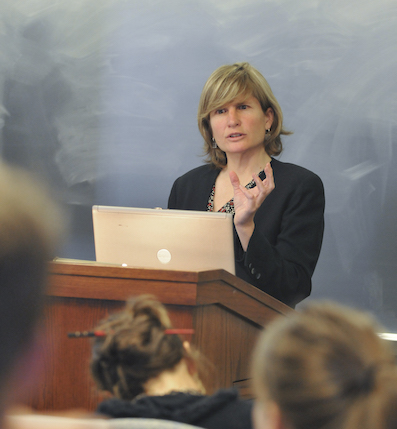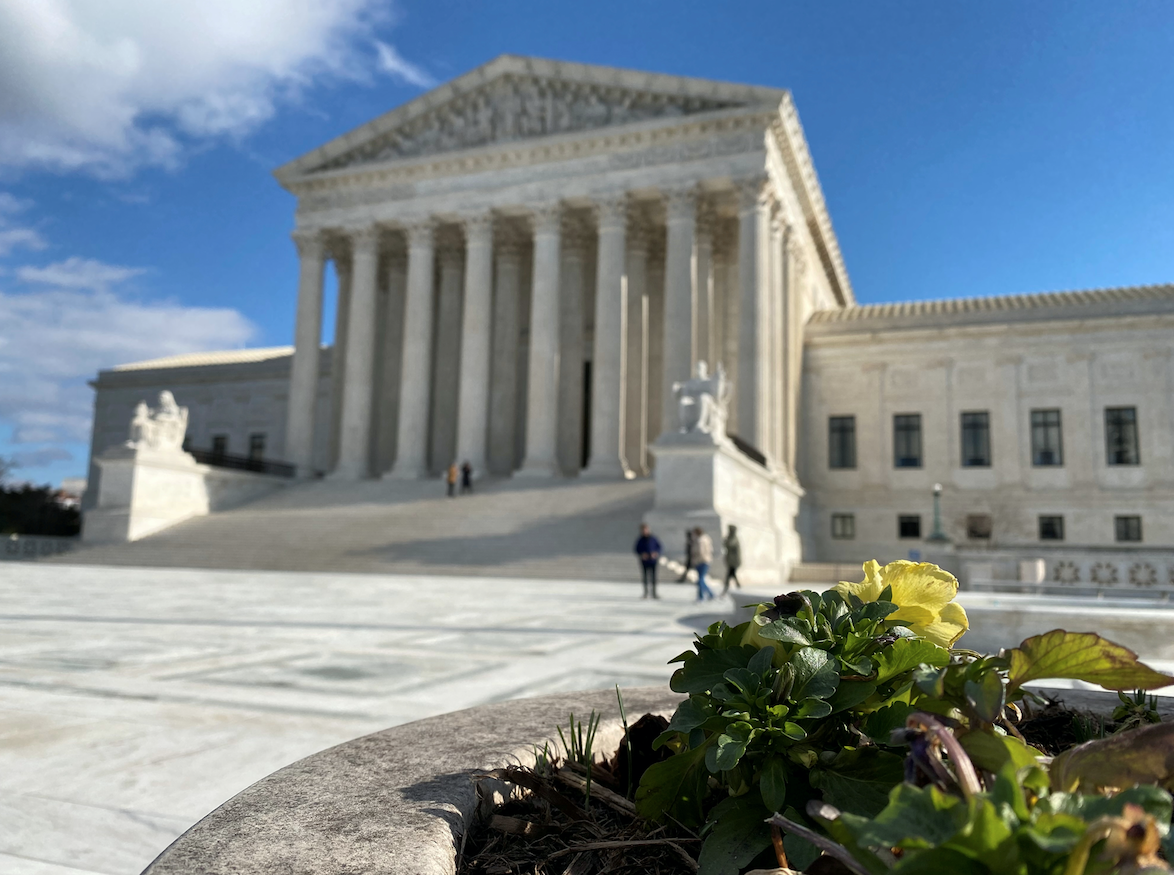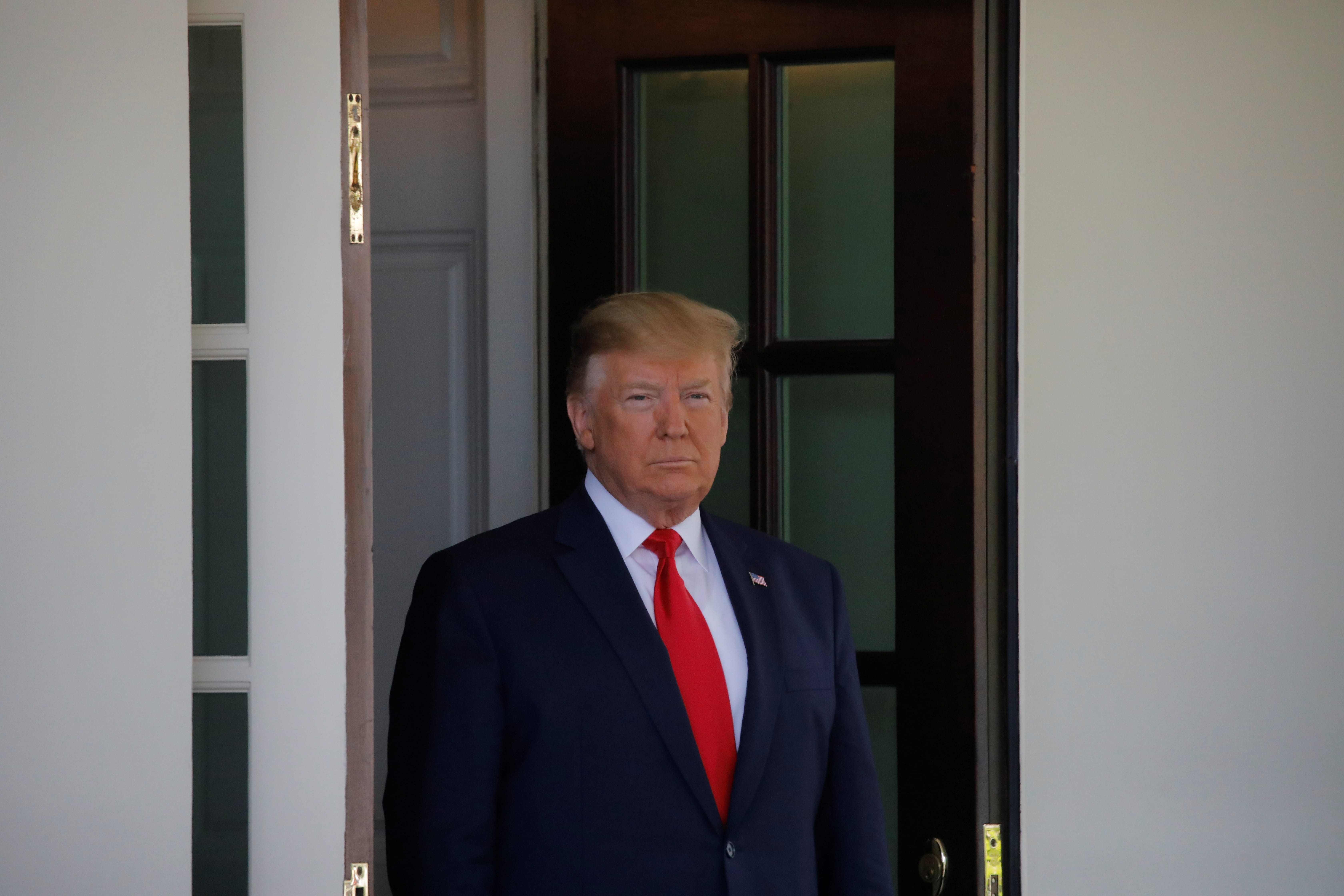The Newseum Institute’s First Amendment expert, Lata Nott, originally published this podcast on the Newseum blog, and has given First Amendment Watch permission to reprint.
Does freedom of the press apply to high school students? Lata Nott interviews two student journalists about their fight to publish a story their school censored.
EPISODE 19: SUMMARY
In this episode of The First Five, Lata Nott speaks with Steven Listopad, a journalism and mass communications professor at Henderson State University, and two student journalists at the Herriman Telegraph, a high school newspaper in Utah, about what happened when their newspaper’s website was shut down by their school.
HOST
Lata Nott is executive director of the Newseum Institute’s First Amendment Center.
GUESTS
Conor Spahr is a student at Herriman High School and news editor of the Herriman Telegraph.
Max Gordon is a student at Herriman High School and editor-in-chief of the Herriman Telegraph.
Steven Listopad is national co-chair of New Voices U.S., newspaper and yearbook advisor at Henderson State University, and journalism and mass communications professor.
TRANSCRIPT
Lata Nott: Welcome to The First Five, a program of the Newseum Institute in Washington, DC, dedicated to the five freedoms guaranteed by the First Amendment. The First Five is a podcast where we cut through the legal jargon and explain to exactly how your First Amendment freedoms work and what you can do to protect them. I’m your host, Lata Nott.
Two high school journalists from Salt Lake City decided to investigate a matter that was on the minds of their fellow students. Why was a popular teacher suddenly missing from campus? With some persistence and ingenuity they found out and they wrote an article about how their teacher was dismissed from his conduct allegations in their school newspaper, the Herriman Telegraph, and then the very next day they found that their story had been deleted from the newspaper’s website. In fact, a few hours later the school shut down the newspaper’s website entirely.
What the students did next is creative and inspiring, but it also sparks a question about what rights student journalists have and what rights should they have. I had the chance to talk to the two journalists from Herriman High School, Conor Spahr and Max Gordon, to get their perspective.
Starting from the beginning, why did you start looking into a story about a missing teacher at your school?
Conor Spahr: We had just heard that the teacher went missing. He was a very popular teacher. Nobody really knew why he had suddenly left class and there were rumors speculating, floating around, people saying that he left because of surgery or health reasons, and there were no facts in the rumors, so we just wanted to get to the bottom of it.
Lata Nott: And what kind of investigation did you do to get to the bottom of this?
Max Gordon: We originally started out by interviewing students and teachers, but not too surprisingly they did not know any more than we did. Our next step was to talk to the administration, so the vice principals and principal at our school, and they refused to tell us anything. They quoted state privacy laws as reasons why they couldn’t tell us anything.
Once we got nowhere with them, we decided to make an open record request to gain documents that are available to the public. From there we were able to find out that he was fired. Then we also had an interesting development. We then requested previous employer and were able to find out that he was fired from his previous employer for doing the exact same thing he did here, which is texting female students inappropriately.
Lata Nott: I see. What I found interesting reading the story is that you actually provide links to the records that were made public by the Jordan School District. Nice little bit of homework there.
Conor Spahr: Yeah. We just wanted anyone to be able to make their own conclusions, and maybe someone out there can find something that we didn’t see.
Lata Nott: So what happened once you published it?
Max Gordon: That first night we published it there was local news stories all around, many regarding our work uncovering the reason he was fired. We went to bed that night, and then I woke up the following morning with a text from Conor saying that our article had been taken down from the website and that his account had been stripped of all privileges, his account on the website.
Conor Spahr: Actually my account got deleted. All the other accounts had their privileges removed.
Max Gordon: We’re assuming that was because Connor was the one to actually post the article itself. But yeah, they pretty much stripped everyone of their privileges to edit, post or change anything on the website.
Then about an hour later they put the website on maintenance mode, so not only could we not change it, but no one could view the website. They completely shut that down. That was very supporting, because this was the accumulation of months of work and what we had been working toward, and we had finally reached the point that we were able to post that work and they just shut it down because they didn’t like what we had to say.
Conor Spahr: And it was not just my article. It was every single article we had written on the website completely unavailable site wise.
Lata Nott: Wow. Everything on the site was unavailable and no one affiliated with the paper could edit or access the site?
Max Gordon: What we ended up finding out is they ordered our teacher advisor to strip our accounts and check on the website. The new policy they have now … The website is back up now, but the new policy is every single article has to be approved by administration, which you can imagine as a newspaper it really hurts us, because if it takes several days for a news story to get approved, it’s no longer relevant. But even when it is approved, it has to be our teacher advisor himself who posts it on the website, so this really has hampered our website to the point where it’s no longer an effective way to get news out.
Conor Spahr: When they stripped our account, that was really surprising.
Lata Nott: Right, because it sounds like you guys had a lot of responsibility and discretion over what was on the website and that’s kind of been taken away.
Max Gordon: Yeah. The frustrating part is that’s not the only thing that they … You know, that it affected our newspaper with. In the past we’ve been able to stay after school and work on the newspaper even if there was not a teacher in the newsroom. I remember last year, for example, I stayed after school until like 9:00 at night because I wanted to make sure the paper was ready. Now they began specifically monitoring that room, and the second a teacher is no longer in there they’ll either send a hall monitor up or they’ll send a secretary up to kick us out of the room because there’s no supervision.
They’ve spied on our internet history. They have torn posters inside our room down and taken documents from inside our room that they do not agree with. So they’ve really started cracking down on us in the whole. Oh, and in addition they’ve also officially reprimanded our teacher. This is the whole case of action that they’ve begun to take on us.
Lata Nott: Once you posted they shut down the paper’s website. What did you guys do after that?
Conor Spahr: Yeah. As soon as you found it was shut down we wanted to get it back out there as quickly as possible. I created a website. Max helped me out, and we … Our first goal was just to get the article back up there, so we did that. Then from there, the weekend we started working on adding content, tweaking and adjusting the theme, and now we’ve hired even more people to work on the website. It’s getting better and better, getting even more content on it.
Max Gordon: With the website we have a little launch and goal here too, because we’ve been getting applications from students outside of our high school, that go to other high schools, and even students that go to high schools outside of our state … Several cases where they have their own problems with administration blocking articles they believe are important and should be posted.
So if we can head in the direction of having our new alternate website not just be a voice for controversial stories at Herriman High, but maybe for students across the country who can’t get their voices heard or can’t get their stories out there, that would be a direction we would love to have.
Lata Nott: At this point you might be wondering whether it’s legal for school administrators to censor articles in school newspapers. Doesn’t that violate the First Amendment? Or you might be rolling your eyes and wondering why this is even a discussion. Who said high school students have First Amendment rights in the first place?
Well, the Supreme Court did in 1969. In a case called Tinker v. Des Moines several students wore black armbands to school to protest the Vietnam war and they were suspended for refusing to take them off. The Supreme Court found that their First Amendment rights had been violated because as Justice Abe Fortas wrote in his opinion students don’t shed their constitutional rights to freedom of speech or expression at the schoolhouse gate.
But the court also said that the First Amendment rights of students are more limited than those of adults, and they’ve laid out two exceptions to their rule. School officials can still punish or censor students’ speech if it would substantially interfere with education in the school or if it would interfere with the rights of others. The kids in Tinker won their case because their armbands were considered a non-disruptive expression of their point of view, even if some other students and teachers disapproved of it or were upset by it.
You’d think that the same would be true of a newspaper article like the one Conor and Max wrote, but in 1988 the Supreme Court decided to apply a different and harsher rule to school newspapers and literary magazines and yearbooks, school sponsored publications in other words. A case called Hazelwood v. Kuhlmeier involved students enrolled in a journalism class at Hazelwood East High School. They were responsible for writing and editing the school’s newspaper. One of the articles chosen for publication was about teen pregnancy and featured stories from pregnant students at Hazelwood East who decided to share their experiences. Their names were changed for the article to protect their privacy, but the school principal still thought the article was inappropriate and prohibited it from being published.
The journalism students thought this violated their First Amendment rights, but the Supreme Court decided that it was okay for high school administrators to censor or punish students for their content in school sponsored publications as long as the school’s reason for censoring the content is related to a legitimate educational interest. It’s a lot easier to prove that you have a legitimate education interest in censoring something than it is to prove your censoring would substantially disrupt the school. Pretty much anything can be a legitimate education interest if you think hard enough about it.
That’s the concern of Professor Steven Listopad. He’s been a professor of journalism and mass communication and the student media director at two different North Dakota universities. He’s currently the newspaper and yearbook advisor at Henderson State University in Arkansas and he’s a longtime advocate for students’ speech rights and the rights of student journalists.
He works on a campaign called New Voices USA, which is geared towards getting states to pass anti-Hazelwood laws, laws that keep schools from being able to censor or punish content unless it is actually disruptive, so if the First Amendment doesn’t protect student journalists at least state law will.
Steven Listopad: Fundamental speech rights, and if you want to be very specific, fundamental press rights of student populations across the country were undercut by the 1988 Hazelwood Supreme Court decision. Journalism and the teaching of journalism, the pedagogy of journalism, is founded on this recidivate notion this, democratic notion, that to be an active and engaged participant in our democracy we need to have free and protected speech, with the variety of exceptions that we all come to understand. However, the 1988 Hazelwood decision took the Tinker standard, took that expectation of speech rights, press rights, away from student journalists specifically.
Lata Nott: So they don’t need to say that story would cause substantial disruption? They can just sensor it if they disapprove of the content?
Steven Listopad: Yeah, because it’s part of the curriculum. Now student journalism can exist outside the curriculum, to so much in 1988, but now with students developing their own websites or creating their own publications and their own blog sites, their own social media. Still, that’s separate and apart from the education process, where we want to educate the students about what it means to be an engaged and active participant in our society, and yet we shove those conversations to the corners, to the fringes, and that’s a result of Hazelwood.
30 years now running we know that it doesn’t work. It’s not a good model for journalism pedagogy. It would be like 30 years of teaching chemistry without ever being able to actually use hydrochloric acid.
Lata Nott: What do you think of the recent story about high school journalism that made news about Herriman High School, about the two student journalists who wrote a story about teacher who had been let go for misconduct and ended up having that story censored? They ended up starting a separate website in order to post the censored content.
Steven Listopad: That’s courageous and that’s ambitious and I support their efforts, but I also think that it’s not a model that’s going to equate to having all students across the country, having their ideas and thoughts read by who needs to read it, and discussed in an open setting that different communities can come to terms with.
They have received a lot of praise for that, but it’s like showering gifts and showering praise on LeBron James and other celebrities. Not everyone can accomplish that successfully. Not everyone has the means to accomplish that successfully, and so I don’t want anybody to think that that’s the answer.
Lata Nott: Conor and Max from Herriman High School agree.
Okay, you guys can start an independent website. You don’t need to have this story published in your school newspaper or on your school newspaper’s website. How would you respond to that?
Conor Spahr: Yes. I would say that our school has a lot more resources for us. They have computer labs here. They have the kind of money in their account for newspaper funding. They have the ability to print their newspaper here. So for us to go … It was kind of hard for us to even spend the $34 that we had to buy the domain, so obviously the school has more resources. It’s already set up. People know about it. Starting a publication from scratch without funding is a lot more difficult.
Max Gordon: And another big factor for myself is the whole point of a student newspaper is to teach the students. We want to grow and learn and experience these things, but if the administration tries to shut down any form of outside the box thinking that may be … Or shut down a positive light, it really hampers the growth by journalists. If we start the alternate website, not every single member of our staff has the capabilities or the resources to work on that alternate website.
The hour and a half in class that they work on this student newspaper might be the only hour and a half they can devote to their journalism, so we would really like to get those huge teaching lessons out through the student newspaper, where we can effect a greater number of students and hopefully teach them how to be better journalists.
Conor Spahr: Yeah. And I also think it’s just a matter of principle. I mean we went above and beyond doing our due diligence on this article. We checked it out with vice principals, we had our editors work on it, we had legal counsel, and we published it within all the guidelines that had been set, and then once it got attention from the media the school then decided oh, we’re going to take this off.
Lata Nott: If you were to design your ideal world or ideal school, what kind of limits do you think should be placed on a school newspaper?
Connor Spahr: I think it should be student run mainly, with a good quality advisor who puts in advice that actually matters and isn’t censoring. Obviously all the resources that a school has, that’s going to be a great thing for students to learn and create their own newspaper with.
Max Gordon: In honesty, I think the school district for legal reasons would still need to review certain articles. I mean that’s just the reality, because it’s a school paper and they don’t want to put themselves at risk, but at the same time that has to be why. If they censor it, it has to be for specific inaccuracies or specific reasons why it would be illegal. If they are only censoring us because it is inaccurate, that is something that would just halt newspapers. So in a perfect world all the censoring would be because of inaccuracies or legal issues that are valid. Yeah.
Conor Spahr: That’s just what I was going to say, is there needs to be communication. If there’s an article that administration believes is inaccurate, they have to talk to the students, talk to the advisor, in person preferably, but we haven’t gotten any of that. We haven’t gotten it in writing. We haven’t gotten an in person talking to. We have gotten absolutely no explanation for why it was taken down except that we heard on one news station from a Jordan District representative that they claimed there were inaccuracies in the story. That’s the only thing that we have heard, and it’s not a great way to find that out.
But in addition, we have sent letters to the superintendent and the principal three times over the past couple of weeks and we’ve received absolutely no response as for a reason.
Max Gordon: And this is where the legality of the whole censorship gets interesting, because under Hazelwood they do have the right to censor us, but they have to have a reason, a specific reason. So if they refuse to give us a specific reason why they are censoring us, we may have to take legal action.
I just wanted to give a shout out to our legal counsel, the Student Press Law Center. They are a huge support for student journalists and they’ve been working through us and helping us with the legal aspect of it, but that may be an action we have to take too.
Lata Nott: Organizations like the Student Press Law Center and their voice, as you say, have made supporting student journalists their mission. I asked Steven Listopad why he thinks this is so important.
Steven Listopad: It’s such a small corner of the entire education system, student journalism, but when we think about fake news and we think about all the distrust of the media … I’m not saying it’s the sole cause. It’s by no means the sole cause for this level of cynicism about the media, but when you have been teaching students for 30 years, when you’ve been teaching the public relations and calling it journalism, there are undoubted negative affects to that.
Lata Nott: Thank you for being with us today for another episode of The First Five, a production of the Newseum Institute located at the Newseum in the heart of Washington, D.C. The Newseum, where there’s more to every story. For more information about the Newseum Institute go to newseuminstitute.org.
ADDITIONAL RESOURCES
- New Voices U.S.
- Student Press Law Center
- The Washington Post: Their school deleted an article on a teacher’s firing. So these teens published it themselves.
- The Herriman Telegram
Tags




